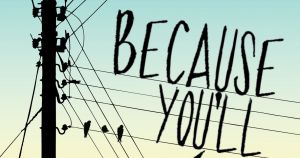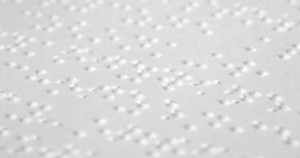
Review: Blind by Rachel DeWoskin
Although I sometimes genuinely enjoyed myself while reading this book, those times were unfortunately outweighed by the serious inaccuracies.

Although I sometimes genuinely enjoyed myself while reading this book, those times were unfortunately outweighed by the serious inaccuracies.

It’s sadly hard to see beyond Emma’s reflections on what she can’t do now that she’s lost her sight to actually find out how she’s adapting and adjusting.

It felt like the author used Moritz’s echolocation as a way of avoiding a realistic portrayal of blindness; too many tired blindness tropes popped up throughout the book for me to love and champion it the way others have.

Today we get most forms of entertainment at the push of a button, so we tend to hate having to wait. The situation is even worse if you can’t read print—resulting in an endless waiting game for blind readers.

Lu’s depiction of life with one eye is up and down; cringe-worthy beliefs are juxtaposed with realistic depictions of the main character’s adjustment to her condition.

Although Laureth didn’t represent me as a blind person, Sedgwick didn’t feed off tropes and stereotypes; instead, he met with many young blind people and found out about their lives.
Disability in Kidlit will be having a week-long event focusing on blindness in YA/MG!

Overall, I found the portrayal of pediatric cancer iffy—better than some, worse than others. Rather than unthinking stereotypes, though, these shortcomings felt like a result of a lack of personal experience or oversights in research.

I would’ve enjoyed Jerk, California a lot more if its depiction of life with Tourette’s Syndrome was handled as well as its technical depiction of Tourette’s Syndrome itself.

Science fiction and fantasy tell us that anything can happen, and yet disabled people are often told that their narratives don’t fit into the genres.